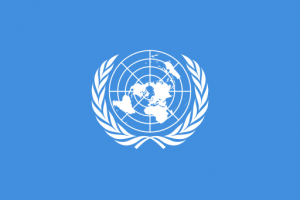


During the 38th Session of the United Nations Human Rights Council (UNHRC), on June 18 – July 6, 2018, the UN Special Rapporteur, an Englishman by the name of Philip Alston, presented a report on poverty in the United States, the full text of which may be read here. This report, based on a two-week fact-finding mission to various locations in the United States and interviews with local, state, and federal politicians and civil servants, represents the official UN view of poverty in America. Unfortunately, the report contains a number of assertions which, as the Gatestone Institute recently pointed out, can be charitably described as misguided.
First and foremost, the Special Rapporteur cannot seem to decide how he wants to define “extreme” poverty, a significant issue in a document with the phrase “Report of the Special Rapporteur on extreme poverty” in its title. The UN defines a person as living in extreme poverty if they live on “less than $1.90 per person per day.” Alston seems to begin with this definition, speaking in terms of extreme poverty and when using US government data (which defines poverty differently than the UN), making at least some effort to distinguish between poverty, extreme poverty, and what he calls “Third World conditions of absolute poverty.” Later in his report, however, he abandons this terminology, speaking only of the 12.7% of Americans living in any kind of poverty.
The report goes on to make a number of significant claims without providing real citations, some of which actually have little to do with the subject of alleviating extreme poverty. A large portion of the document deals with tax rates on the wealthy, which, while a subject of legitimate debate elsewhere, seems outside the scope of a report on poverty. Similarly, the Special Rapporteur spends an inordinate amount of time focusing on levels of political participation and voting patterns, both peripheral issues with little bearing on the subject at hand. Within this tangential argument, the Rapporteur makes assertions like, “The principle of one person, one vote applies in theory, but is increasingly far from the reality,” without providing any data or sources to back up his claim. Finally, the report’s conclusions includes a suggestion to “decriminalize being poor,” based on the fatuous assertion that, “workers who cannot pay their debts, those who cannot afford private probation services, minorities targeted for traffic infractions, the homeless, the mentally ill, fathers who cannot pay child support and many others are all locked up.”
Ultimately, the Rapporteur bases his entire report on the assumption that poverty continues to persist in the United States due to intentional governmental inaction. Final suggestions notwithstanding, the real conclusion of the es around halfway through the document in this revealing statement: “… the persistence of extreme poverty is a political choice made by those in power. With political will, it could readily be eliminated.”
The membership of the UNHRC gives each of these questionable claims an added undertone of hypocrisy. The council, from which the United States recently resigned, currently includes such nations as Afghanistan, Cuba, Saudi Arabia, and Venezuela. In Freedom House’s 2018 Freedom in the World index, these four nations ranked 154th, 186th, 202nd, and 165th, respectively, out of 210 nations or quasi-states. All four nations are classified as “Not Free” – and they are by no means the only nations on the UNHRC’s roster to be given this classification.
As a final note, however, some attention must be given to the few grains of truth buried in the UNHRC’s report. Regardless of how we define classifications like extreme or absolute, poverty does indeed exist in the United States, and many of America’s poor are finding it increasingly difficult to climb out of it. The Gatestone Institute, in its recent article, makes much of Mr. Alston’s efforts to include the racial dimension in his report, but overlooks the merits of his conclusion that “the face of poverty in America is not only Black or Hispanic, but also White, Asian and many other backgrounds.”
The Gatestone article consistently uses bative tone, assuming the UN to be “a group of haters of freedom and capitalism engaged primarily in spewing ignorance, malice or both toward the United States.” According to F.A. Hayek, however, “it is neither selfish interests nor evil intentions but mostly honest convictions and good intentions which determine the intellectual’s views.” Hayek’s assertion can, and should, be extended even to someone so misguided as Philip Alston and the UNHRC. Poverty fundamentally undermines the dignity of the human person, and as such should be addressed with all possible efforts. The UNHRC surely misses the mark with its report on extreme poverty in the US, but resorting to ad hominem attacks on Mr. Alston and his supporters wastes an opportunity to provide a counternarrative – one in which the Church and private actors address the epidemic of American poverty in a meaningful way.
Photo: By Wilfried Huss / Anonymous [Public domain], via Wikimedia Commons









